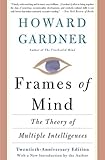 The term “Multiple Intelligences” was first coined by Harvard psychologist Howard Gardner. His theory is spelled out in the 1983 book, Frames of Mind: The Theory of Multiple Intelligences. Gardner posits that humans possess 7 types of intelligence, not just one:
The term “Multiple Intelligences” was first coined by Harvard psychologist Howard Gardner. His theory is spelled out in the 1983 book, Frames of Mind: The Theory of Multiple Intelligences. Gardner posits that humans possess 7 types of intelligence, not just one:
- linguistic intelligence
- logical/mathematical intelligence
- musical intelligence
- visual/spatial intelligence
- bodily/kinesthetic intelligence
- interpersonal intelligence
- intrapersonal intelligence
Sadly, traditional education systems focus only on the first two kinds of intelligence. This is just as true when it comes to foreign languages. Nearly all language courses, teachers and materials focus exclusively on linguistic intelligence (e.g. overt explanations of grammar, word usage, etc.). When people claim that they are not good at foreign languages, what they really mean is “I have low linguistic intelligence.” The good news is that it doesn’t matter!
Consider my case. When attempting to convince would be foreign language learners that they too can learn, the reply is usually the same: “You are just good at languages. I am not.” What they don’t realize is that my linguistic intelligence is actually quite low. I have been successful in foreign language learning because I tap into other intelligences.
So how then can we apply multiple intelligences in foreign language learning? First of all, you need to identify your strengths and weaknesses. You will then be able to make the most of the former and mitigate the latter. There are countless online surveys you can take to identify your multiple intelligence profile, but I recommend the one below one since it allows you to answer on a scale of 1 to 5 (more accurate than yes/no) and then offers suggested study methods to suite your strengths.
Take Action
- Click here to take the multiple intelligences survey.
- Read Gardner’s groundbreaking work .
